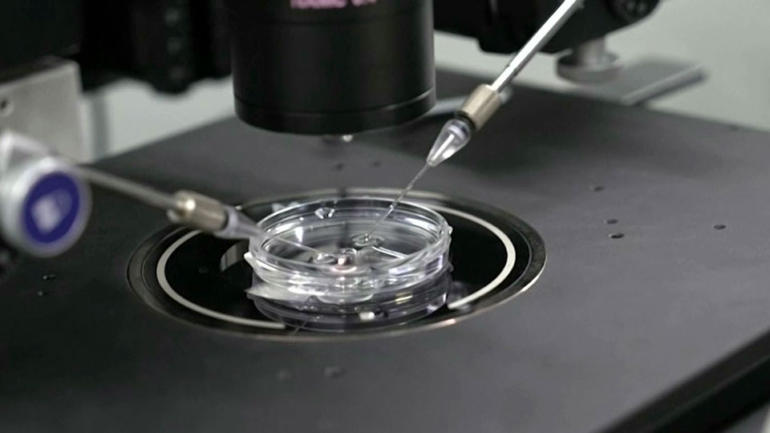A Chinese researcher claimed to have created the first genetically-edited babies, but many in the scientific community have condemned his claim and authorities in China have also ordered an investigation.
CGTN’s Jim Spellman reports.
A Chinese researcher has shocked the scientific community when he claimed to have created the first genetically edited babies–twin girls born as part of an experiment to create HIV resistance by altering DNA in embryos during in-vitro fertilization.
The researcher in question, He Jianku, said he is affiliated with Southern University of Science and Technology in Shenzhen, and is the lead scientist on the project.
“I feel a strong responsibility,” He said. “It’s not just to make a first but also make it an example, how to perform things like this, consider morality of the society and consider its impact to the public.”
If He’s claims are true then the birth raises both serious moral and ethical issues.
Many questions still remain about the experimental procedure, and the research has not been confirmed or reviewed by scientists and the parents of the baby have not been identified.
Southern University of Science and Technology also say He has been on unpaid leave since February.
The school also issued a statement saying the research outside the campus and it was unaware of the research project and its nature. It also added that the research had seriously violated academic ethics and codes of conduct.
Some researchers also say the procedure is simply too risky.
“We still have a lot of work to do to prove and establish that the procedure is actually safe,” said Dr. Kiran Musunuru from the University of Pennsylvania. “I would say no babies should be born at this time, following the use of this technology. It’s simply too early and too premature.”
More than 120 Chinese biomedical researchers also issued a statement condemning the experiment on Weibo, the Chinese social media site. Excerpts from the document said “no one can predict the outcomes of altered genetic material mixing into the human gene pool.”
The researchers also called for stricter regulations on human genetic experiments in China. Similar research is banned in the United States and other countries.
However, He, insists his work is valuable and inevitable.
“The world has moved on to the stage for embryo gene editing,” He said. “There will be someone, somewhere, who is doing this. If it’s not me, it’s someone else.”
The scientific community remains split on human genetic editing. Some bioethicists fear the technology could lead to a disruption of the natural order with the creation of so-called “designer babies” or “super humans”.
But others argue the new technology could improve lives by preventing disabilities and diseases, and it is a debate that will likely intensify if the birth of these genetically editing twins is confirmed.
Marcy Darnovsky, PhD on ethics of human genetic modification
Marcy Darnovsky, PhD, the executive director of the Center for Genetics and Society, discusses the ethics of human genetic modification.
 CGTN America
CGTN America

